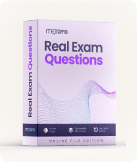IAPP CIPP-A - Certified Information Privacy Professional/Asia (CIPP/A) Exam
Page: 2 / 19
Total 93 questions
Question #6 (Topic: Exam A)
Which jurisdiction was the first to consider IP addresses to be personal information?
A. India.
B. Hong Kong.
C. The United States.
D. The European Union.
Answer: D
Question #7 (Topic: Exam A)
In the area of human rights, what separates Singapore from many other Asian countries?
A. It is not a member of the Association of Southeast Asian Nations (ASEAN).
B. It has not signed the International Covenant on Civil and Political Rights.
C. It has not adopted the ASEAN Human Rights Declaration.
D. It is not a member of the United Nations.
Answer: B
Question #8 (Topic: Exam A)
Besides the Personal Data Protection Act (PDPA), which of the following is a potential source of privacy protection for Singapore citizens?
A. Constitutional protections of personal information.
B. International agreements protecting privacy.
C. The tort of invasion of privacy.
D. Breach of confidence law.
Answer: A
Question #9 (Topic: Exam A)
Which of the following would NOT be exempt from Singapore’s PDPA?
A. A government automobile registration website.
B. A private party room at a popular restaurant.
C. A documentary filmed at a rock concert.
D. A video from a store's dosed-circuit TV.
Answer: D
Question #10 (Topic: Exam A)
SCENARIO – Please use the following to answer the next question:
Delilah is seeking employment in the marketing department of Good Mining Private Limited, an industry leader in drilling mines in Singapore. Delilah, while filling in the standard paper application form, is asked to provide details about emergency contacts, medical history, blood type and her insurance policy. These fields need to be filled in no matter which department Delilah applies to. The form also asks Delilah to expressly consent to the collection, use and disclosure of her personal data.
A week after submitting the form, Delilah is invited by Evan, the Director of Marketing at Good Mining, to coffee. Just before Delilah leaves, she gives her business card containing her current business contact information to Evan. Evan then uses the business card to add Delilah's details to Good Mining's business development database, which is kept on a local server. Good Mining uses the database to inform people about networking and client events that Good Mining organizes.
Why is it legal for Evan to add the information on Delilah's business card to the business development database?
Delilah is seeking employment in the marketing department of Good Mining Private Limited, an industry leader in drilling mines in Singapore. Delilah, while filling in the standard paper application form, is asked to provide details about emergency contacts, medical history, blood type and her insurance policy. These fields need to be filled in no matter which department Delilah applies to. The form also asks Delilah to expressly consent to the collection, use and disclosure of her personal data.
A week after submitting the form, Delilah is invited by Evan, the Director of Marketing at Good Mining, to coffee. Just before Delilah leaves, she gives her business card containing her current business contact information to Evan. Evan then uses the business card to add Delilah's details to Good Mining's business development database, which is kept on a local server. Good Mining uses the database to inform people about networking and client events that Good Mining organizes.
Why is it legal for Evan to add the information on Delilah's business card to the business development database?
A. Because Delilah "consented" to her business contact information being used by Good Mining by passing it to Evan voluntarily.
B. Because any business contact information can be freely used, collected or disclosed by Good Mining.
C. Because Good Mining does not export the information to a cloud vendor.
D. Because Delilah initiated the relationship with Good Mining.
Answer: B
